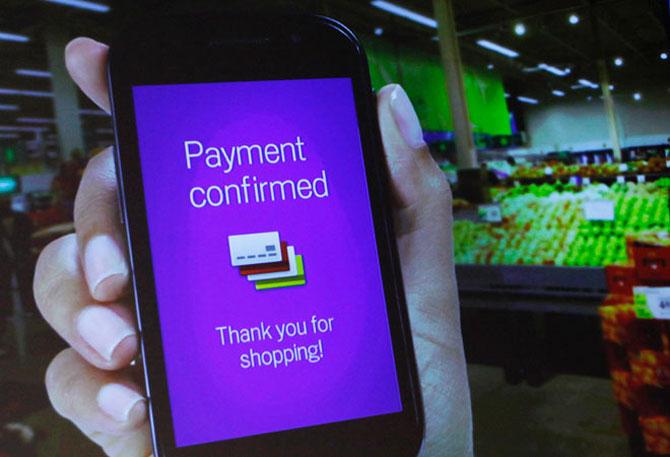Digital transaction players are hurriedly drawing up a memorandum to be taken to the central bank in hope of having a few of the guidelines -- such as full Know Your Customer (KYC) compliance in 12 months -- overturned, reports Karan Choudhury.

The roller coaster ride continues for digital money players. From an initial high of more than 450 million new customers soon after demonetisation, many are staring at a massive loss of user base, thanks to the new Reserve Bank of India (RBI) guidelines on prepaid payment instruments (PPIs).
Recently, the RBI issued a series of guidelines, setting a road map for full operability between all Know Your Customer (KYC)-compliant wallets.
However, if existing PPI customers did not share KYC details by the year-end, they would be converted to the minimum-slab PPI holders by January next year.
Digital transaction players are now hurriedly drawing up a memorandum to be taken to the central bank in hope of having a few of the guidelines -- such as full Know Your Customer (KYC) compliance in 12 months -- overturned.
Many industry insiders believe the new guidelines would take away transactional convenience of PPIs.
"The biggest USP of digital wallets was the convenience and ease attached to using them. With the new guidelines in place, that confidence is gone. Also the December 31 deadline for companies to secure the full KYC of existing customers is too short," said Praveen Dhabhai, chief operating officer, Payworld.
The biggest concern of digital payment players, however, is having mandatory KYC norms would cost them customer base.
"We think that the guidelines are overkill. We still do not understand why the RBI comes out with norms that are same as those for banks. We are digital e-commerce players, who are serving a set of customers who want convenience as well as faster action. When payments bank norms came out, we had the same problems. A customer making small transactions would not be interested in following the same procedures they would have to follow to open a bank account. It defeats the purpose," said a senior executive with a digital payments firm.
Even major players such as Amazon Pay, which received a PPI licence some time back, are concerned about the full KYC norms.
"One of our concerns is that even low-usage wallets are required to do a KYC beyond 12 months. We urge the regulator to re-examine this in line with international guidelines, and adopt a framework of proportional KYC," said Sriram Jagannathan, vice president, payments, Amazon India.
According to the norms, semi-closed PPIs such as mobile wallets have to be upgraded to full KYC norms within 12 months from the date of issue of the PPI.
For existing wallets, companies need to ensure that they have full KYC by December 31. Following which, these wallets will cease to exist.
"As an industry we would like to seek clarity with the regulator and understand better the reasons for a few downward revisions and limits, like minimum KYC PPI limit of Rs 10,000 and also gift cards, which are non-cash instruments, and cash loading of PPI. These may limit our fight against physical cash in the economy, especially when we can buy gold up to Rs 2 lakh with cash in our country," Bhavik Vasa, chief growth officer, ItzCash Ebix, said.
According to industry insiders, various digital payments companies are now planning to approach the RBI to appeal for a relook at the guidelines.
"We are getting the memorandum ready. We hope to meet RBI officials after Diwali," said a senior executive of one such firm.
The government had demonetised Rs 500 and Rs 1,000 notes on November 8 last year, sucking out 86 per cent of the cash in the economy. One of the aims of the move, the government had claimed, was to shift to digital transactions.
As the note ban caused a massive paucity of cash, a large number of people had, in fact, started using payment wallets. However, as cash returned to the economy, many people returned to it, and stopped using payment wallets.











